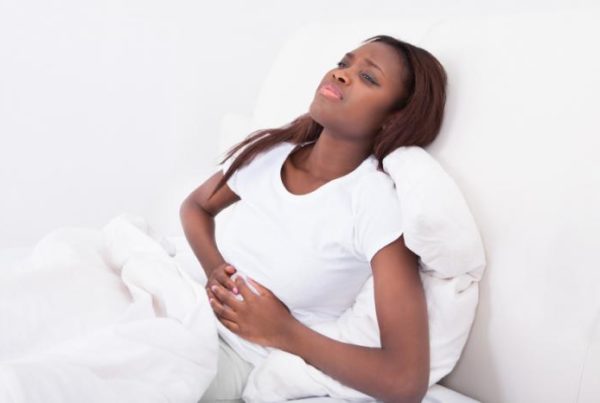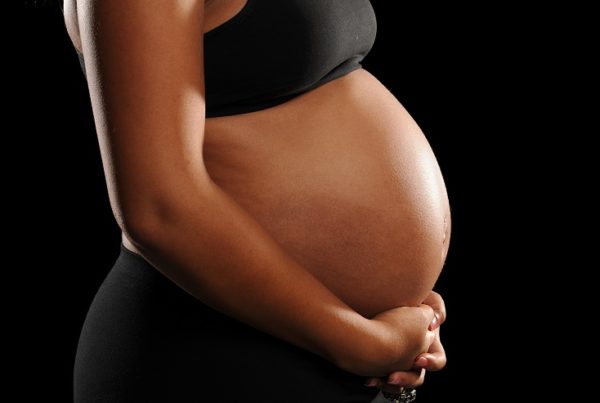The Worldwide Endo March previously called the Million Women March for Endometriosis, is a worldwide campaign aimed at raising awareness of Endometriosis.
The campaign and its events are run by volunteers who are passionate about creating change for women and girls with endometriosis to raise funds, increase education and awareness. In Nigeria, the 5 kilometer endowalk and carnival is organized annually by Nordica Fertility Centre and the Endometriosis Support Group Nigeria (ESGN).
This year the activity will take place on March 16.
Members of ESGN, secondary schools, journalists and all stakeholders will be walking to create awareness about endometriosis. The walk traditionally starts at City Mall, Onikan through Awolowo Road, Ikoyi and terminates at Muri Okunola Park in Victoria Island.
There will be live performances, speeches, testimonials, and other activities to create awareness around the issue of endometriosis.
Any woman with endometriosis would agree it is worth discussing year round — not just in March. And there is a desperate need for more awareness about this disease in the medical field and beyond.
Endometriosis is the growth of tissues of the inner lining of the uterus in other places. Most of the Endometriosis patches grow in the pelvic cavity and generally, on or over the two ovaries and behind the uterus or tissues holding the uterus, and on the bowels or bladder. The major symptom is the pelvic pain very often linked with the menstrual cycle, sometimes cramping during the period and the pain is worse than regular pains during the cycle.
One of the main complications is infertility; about 30-50 percent of women suffering with the disorder face difficulties in getting pregnant.
If you are living with endometriosis, then you know how the physical and mental pain rarely goes away. Endometriosis can be extremely debilitating, but it’s also a disease that women often struggle to get diagnosed correctly.
It is especially common among women in their 30s and 40s and may make it harder to get pregnant. Several different treatment options can help manage the symptoms and improve your chances of getting pregnant.
Endometriosis can have a variety of symptoms, and that’s also one reason that it can be difficult to diagnose. But there’s also a lack of understanding about it.
With millions of women around the world living with this disorder, you would expect that it would be something that could easily be detected by physicians. But unfortunately, that’s often not the case. And the consequences of not getting endometriosis diagnosed can last a lifetime.
Endometriosis isn’t a fatal disease, but that is cold comfort. It won’t kill but it can get so bad you’ll wish that it kills you. It is considered a benign disease. It doesn’t kill but varies from causing no symptoms, to causing debilitating pain and infertility.
Endometriosis can happen in any girl or woman who has menstrual periods, but it is more common in women in their 30s and 40s. You might be more likely to get endometriosis if you have never had children or have menstrual periods that last more than seven days, or short menstrual cycles (27 days or fewer).
You are also more at risk if one or more of your family members (mother, aunt, sister) has been diagnosed with endometriosis or you have a health problem that blocks the normal flow of menstrual blood from your body during your period.
A number of women have asked why it takes so long for endometriosis to be diagnosed. One particular patient was quite distraught. Her mother had been diagnosed with endometriosis and ovarian cancer, but even with her family history, it was not immediately obvious. She had painful, heavy, clotty periods since day 1 and also presented with painful ovulation and series of miscarriages with debilitating pelvic pain that left her unable to walk.
The pain one suffered was severe but she had been told it was constipation and in her head. It took quite a while before she was diagnosed after being led to believe everything was in her head.
What if it is left untreated? Endometriosis can be serious especially if it remains untreated. If left untreated, endometriosis can (however does not always) result in a range of symptoms, including dysmenorrhoea (pain during menstruation), pelvic pain, infertility or sub-fertility (a reduced ability to become pregnant).
For most women, endometriosis recedes with menopause. Some women find relief during pregnancy. In some cases, symptoms may simply go away. About one-third of women with mild endometriosis will find that their symptoms resolve on their own.
Is there a cure? Endometriosis has no cure, but its symptoms can be managed. Medical and surgical options are available to help reduce your symptoms and manage any potential complications. Your doctor will first try conservative treatments. They may then recommend surgery if your condition doesn’t improve.
Can endometriosis lead to cancer? Sometimes the endometrial cells create cysts that can rupture and bleed, sounding like cancer, but endometriosis isn’t cancer. However, it may increase the risk of getting ovarian cancer.
For some women, the painful symptoms of endometriosis improve after menopause. As your body stops making the hormone estrogen, the growths shrink slowly. However, some women who take menopausal hormone therapy tend to have symptoms of endometriosis.
If you are having symptoms of endometriosis after menopause, seek medical advice about treatment options.
Regular exercise helps at least four hours a week. This will also help you keep a low percentage of body fat. Regular exercise and a lower amount of body fat help decrease estrogen in your body.
Alcohol intake in large amounts is a bad idea with endometriosis. Alcohol raises estrogen levels. Also, avoid a large amount of caffeine intake as studies show that too much caffeine can raise estrogen levels.
One of the questions commonly asked about endometriosis is: “How do I find a doctor who knows how to treat endometriosis” or “Where can I find the medical help that I desperately need?”
This is usually a dilemma for girls and women who have (or believe they may have) endometriosis.
In Nigeria, several doctors are learning to diagnose endometriosis but are usually located in larger cities such as Lagos, Abuja, Asaba, etc., or in the teaching hospitals. Locating them is the trick especially as there is no medical specialty for “endometriosis expert”.
In your quest to find an endometriosis specialist, never start with the telephone book! That would undoubtedly be a waste of time and effort.
You should also be careful of recommendations from friends and family members unless they also have endometriosis. I squandered two years with a recommended “fertility expert” who made both my endometriosis and infertility worse.
As with most things concerning endometriosis, the best place to start is with a local or national endometriosis support group through which doctors proficient in treating the disorder can be located.
Online forums are also useful. In most cases, your family doctor would be in a position to recommend a suitable endometriosis expert. The bottom line is that you are not alone and you do not have to live with the pain. There is help and treatment at hand.





